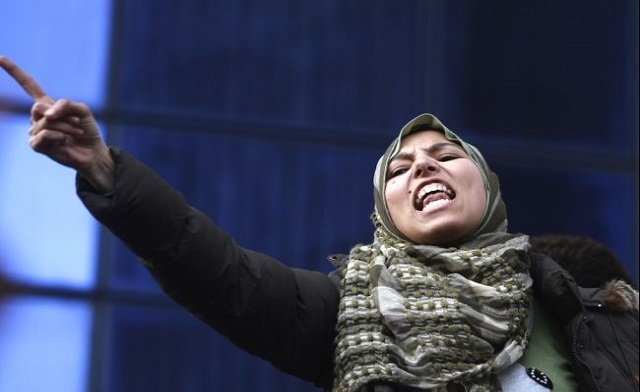On 8 March 1857, thousands of women went out to protest on the streets of New York against the inhumane conditions under which they were forced to work. Even though police intervened to disperse the protests, it still managed to make officials to look into the problems of working women.

On 8 March 1908, thousands of textile workers went back to protest in New York, this time carrying pieces of bread and bouquets as a symbol. They chose the name “Bread and Flowers” for their protests. The protests demanded granting women their right to vote. In 1977, the majority of the members of the United Nations (UN) General Assembly designated 8 March as a United Nations Day for Women’s Rights and International Peace, and with time it became a symbol of women’s struggle to demand their rights across the world.
Locally, even though Egypt is the country of Hatshepsut, Hypatia, Suhayr Al-Qalamawi, Hoda Shaarawy, Latifa Nady, Amina El Saeed, Samira Mousa, Safeya Zaghloul, Om Kolthoum, Rose Al Youssef, Nabawya Moussa, and Malak Hefny Nasif, Egyptian women still suffer from patriarchal discrimination against them, which is based on both wrong traditions and falsely understood religious beliefs. This is the result of ignorance and cultural decay witnessed by the Egyptian society since the last third of the last century, despite the fact that God sees all humans as equal without discrimination based on their race or gender.
The qualitative development of women’s rights in society was tangible since 1981 when Egypt signed the CEDAW agreement, which is a UN agreement to eliminate all kinds of discrimination against women. This was followed by the establishment of the National Council for Women in 2000 and launching several campaigns, such as Legal Consultations and Judicial Aid, Against Female Genital Mutilation, Against Early Marriage, Reproductive Health Awareness, and the Women’s Societal Rights Awareness campaign. The establishment of movements and women’s organisations followed, such as Nazra, Baheya, Noon El Neswa, the Egyptian Feminist Union, and the National Alliance of Woman Organization (NAWO). Several of these organisations have taken part in the formation of societal awareness of women’s issues that has recently thrived, especially awareness of sexual harassment and female genital mutilation, in addition to female representation in several sectors of the society to provide equal opportunities according to the constitution.
The road may be long, but even a journey of a thousand miles begins with one first step—and we have only taken a few steps.
To every mother, daughter, wife, sister, girl, and every woman in the world: I hope every year you remain just as great and proud.
Mohamed Samir is a lecturer on political regimes and Comparative Constitutional Law. He is also a visiting professor at several American universities.



